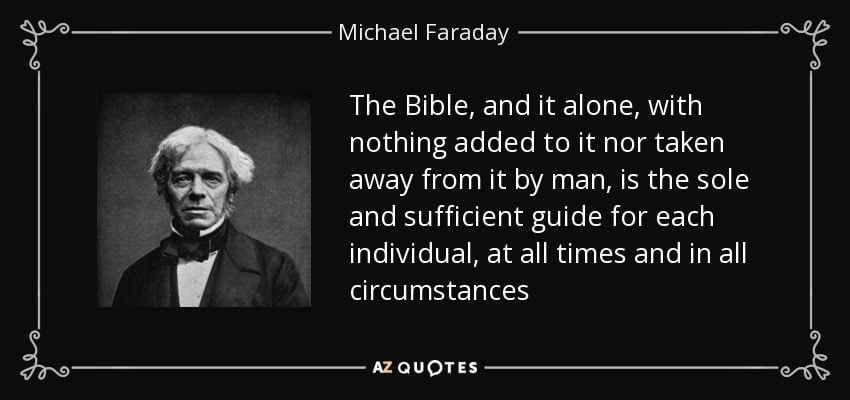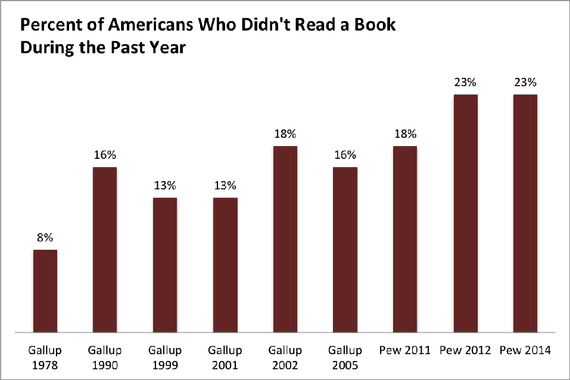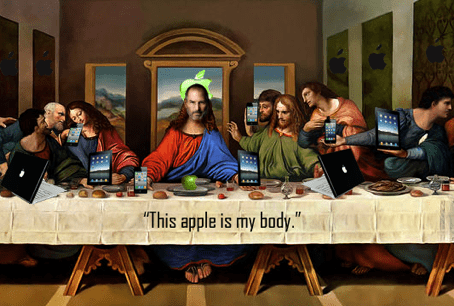
Evangelicals love to claim that they are “people of the book” — the book being the Protestant Bible. Evangelicals talk a lot about the sufficiency of Scripture. According to these followers of Jesus, all that believers need for life and godliness can be found in the Bible. Yet, these same people write books, host radio programs, and blog about how the people of the book should understand and interpret the book they say contains everything Christians need to successfully live as followers of Jesus. Calvinists, in particular, make much of sola scriptura — Scripture alone. One such person is Jon Bloom, staff writer for John Piper’s Desiring God website. Bloom writes:
We have the New Testament largely because of the theological diseases that infected and afflicted the first-generation churches. The apostles wrote to clarify and remind early believers of things they had been taught, and to correct false doctrines that were springing up.
All of church history resembles the New Testament: remarkable outpourings of the Holy Spirit, gospel advances, churches planted, outbreaks of persecution and martyrdoms, doctrinal distortions and leadership abuses and all manner of sin causing churches to be, as the old hymn says, “by schisms rent asunder, by heresies distressed,” followed by Holy Spirit-empowered revival and reformation movements.
To have knowledge of church history is good — really good. It helps us keep perspective. It helps us keep from being too euphoric and triumphalist in revival, too depressed and defeatist in tribulation, and too enamored of The Next Big Thing, the new method, strategy, or movement that promises to be The Answer. Church history helps us remember, “Is there a thing of which it is said, ‘See, this is new’? It has been already in the ages before us” (Ecclesiastes 1:10).
But it’s best to know our Bibles very well. The only proven antidote to the doctrinal and moral diseases that have always afflicted the churches of God is “holding fast to the word of life” (Philippians 2:16) and “not . . . go[ing] beyond what is written” (1 Corinthians 4:6). Church history serves to confirm this is true.
We must submit to “the whole counsel of God” (Acts 20:27) and not allow the limits of our own understanding to place unbiblical limits on the “breadth and length and height and depth, and . . . the love of Christ that surpasses knowledge” (Ephesians 3:18–19). Plead with God for the strength to comprehend what is beyond our human ability to grasp (Ephesians 3:18).
And resolve not to go beyond what is written (1 Corinthians 4:6).
And at the end of Bloom’s article? Books for sale that will help Christians better “understand” the all-sufficient Word of God.
Evangelical writers continue to churn out books, radio broadcasts, YouTube videos, audio recordings, and blog posts that are meant to “explain” what the Bible teaches. Or better put, meant to “explain” what that particular Evangelical thinks the Bible teaches. Why the need for all the extra-Biblical material if the Bible is the only book Christians will ever need? Why all the Bible study books if born-again, bought-by-the-blood. Holy-Ghost-filled Evangelicals have the very Words of God at their disposal?
The bookshelves found in the average Evangelical pastor’s study are filled with all sorts of books: commentaries, Bible translations, concordances, sermon outlines, sermon illustrations, Christian biographies, theological tomes, self-help books, and one-offs dealing with politics, the culture war, and clean Christian jokes. And thanks to computers, many of these books and study helps are now available online or through purchased software. Yet, come Sunday, these same pastors — after spending 10-20 hours reading and studying books about the Bible — will say to their congregations, “We are people of the Book! The inspired, inerrant, infallible Protestant Bible is all-sufficient. Praise be to God for giving us through his Word everything necessary to live in an evil world as his chosen people!”
Al Mohler, in a January 2016 blog post, lamented the theological and Biblical ignorance of many Christians. Mohler writes:
While America’s evangelical Christians are rightly concerned about the secular worldview’s rejection of biblical Christianity, we ought to give some urgent attention to a problem much closer to home–biblical illiteracy in the church. This scandalous problem is our own, and it’s up to us to fix it.
Researchers George Gallup and Jim Castelli put the problem squarely: “Americans revere the Bible–but, by and large, they don’t read it. And because they don’t read it, they have become a nation of biblical illiterates.” How bad is it? Researchers tell us that it’s worse than most could imagine.
Fewer than half of all adults can name the four gospels. Many Christians cannot identify more than two or three of the disciples. According to data from the Barna Research Group, 60 percent of Americans can’t name even five of the Ten Commandments. “No wonder people break the Ten Commandments all the time. They don’t know what they are,” said George Barna, president of the firm. The bottom line? “Increasingly, America is biblically illiterate.”
Multiple surveys reveal the problem in stark terms. According to 82 percent of Americans, “God helps those who help themselves,” is a Bible verse. Those identified as born-again Christians did better–by one percent. A majority of adults think the Bible teaches that the most important purpose in life is taking care of one’s family.
Some of the statistics are enough to perplex even those aware of the problem. A Barna poll indicated that at least 12 percent of adults believe that Joan of Arc was Noah’s wife. Another survey of graduating high school seniors revealed that over 50 percent thought that Sodom and Gomorrah were husband and wife. A considerable number of respondents to one poll indicated that the Sermon on the Mount was preached by Billy Graham. We are in big trouble.
Secularized Americans should not be expected to be knowledgeable about the Bible. As the nation’s civic conversation is stripped of all biblical references and content, Americans increasingly live in a Scripture-free public space. Confusion and ignorance of the Bible’s content should be assumed in post-Christian America.
The larger scandal is biblical ignorance among Christians. Choose whichever statistic or survey you like, the general pattern is the same. America’s Christians know less and less about the Bible. It shows.
How can a generation be biblically shaped in its understanding of human sexuality when it believes Sodom and Gomorrah to be a married couple? No wonder Christians show a growing tendency to compromise on the issue of homosexuality. Many who identify themselves as Christians are similarly confused about the Gospel itself. An individual who believes that “God helps those who help themselves” will find salvation by grace and justification by faith to be alien concepts.
Christians who lack biblical knowledge are the products of churches that marginalize biblical knowledge. Bible teaching now often accounts for only a diminishing fraction of the local congregation’s time and attention. The move to small group ministry has certainly increased opportunities for fellowship, but many of these groups never get beyond superficial Bible study.
Youth ministries are asked to fix problems, provide entertainment, and keep kids busy. How many local-church youth programs actually produce substantial Bible knowledge in young people?
Even the pulpit has been sidelined in many congregations. Preaching has taken a back seat to other concerns in corporate worship. The centrality of biblical preaching to the formation of disciples is lost, and Christian ignorance leads to Christian indolence and worse.
This really is our problem, and it is up to this generation of Christians to reverse course. Recovery starts at home. Parents are to be the first and most important educators of their own children, diligently teaching them the Word of God. [See Deuteronomy 6:4-9.] Parents cannot franchise their responsibility to the congregation, no matter how faithful and biblical it may be. God assigned parents this non-negotiable responsibility, and children must see their Christian parents as teachers and fellow students of God’s Word.
Churches must recover the centrality and urgency of biblical teaching and preaching, and refuse to sideline the teaching ministry of the preacher. Pastors and churches too busy–or too distracted–to make biblical knowledge a central aim of ministry will produce believers who simply do not know enough to be faithful disciples.
Mohler, the president of The Southern Baptist Theological Seminary and a leader in the hostile Calvinistic takeover of the Southern Baptist Convention, thinks that the solution for the theological ignorance is for pastors to return to Biblical teaching and preaching. Mohler is a big proponent of expository preaching. (Expository preaching is a form of preaching that details the meaning of a particular text or passage of Scripture. It explains what the Bible means by what it says. Exegesis is technical and grammatical exposition, a careful drawing out of the exact meaning of a passage in its original context. Wikipedia) He thinks it is up to pastors to use some sort of Vulcan mind meld to impart Christian theological knowledge to church members, forgetting that many members have the attention span of a toddler and are more concerned with lunch and Sunday’s match-up between the Denver Broncos and the New England Patriots.
I thought that the only book that Christians need to the Bible. I thought that the Bible is all-sufficient. Surely, if God himself (the Holy Spirit) lives inside of every Christian and is their teacher and guide, shouldn’t every Evangelical know what the Bible says and means? Evidently not. Despite asking Jesus into to their heart and the Holy spirit living in said heart, Evangelicals still need clerics to tell them what the various books and verses of the Bible mean. For 2,000 years now, educated (and not so educated) pastors have been telling Christians what they should/must believe, going so far as to suggest that if Christians don’t believe the right things it is doubtful they will go to heaven when they die.
I was a part of the Christian church for fifty years, pastoring Evangelical churches in Ohio, Texas, and Michigan for twenty-five of those years. I started my preaching career as a topical/textual preacher, moving to expository preaching once I embraced John Calvin’s doctrines of grace. I took seriously my obligation to preach and teach the word of God. As an expository preacher, I preached through numerous books of the Bible, including preaching over one hundred consecutive sermons from the gospel of John. Yet, despite all my preaching and teaching, most church members were content to believe what I believed. No matter how often I challenged and berated them over their lack of diligence and theological acumen, congregants were content to dust off their Bibles on Sunday and passively sit in the pew as Pastor Bruce preached to them the wondrous truths of God’s perfect Word. While a handful of church members would read theological books, study the Bible, and listen to sermon tapes, the rest of the congregation decided to live with the guilt of not being students of the Word.
The reasons for this lack of desire are many, but let me end this post with a few of them.
First, the people I pastored had a life outside of church. While the majority of church members attended church every time the doors were open — often two to four services a week — they also had other obligations: jobs, houses, lands, and families. As a pastor, I was paid to read and study the Bible. My schedule afforded me the leisure necessary to spend hours each week reading theological books. When I wanted or needed to do some intense study, all I had to do is cloister myself away in my study and put up a closed sign on the door. Trained to be “sensitive” to the man of God’s spiritual needs, congregants left me alone, believing that it was more important for me to hear from God than them.
Try as they might, most church members simply did not have the requisite time necessary to devote themselves to reading and studying the Bible. Members often resorted to short devotional booklets such as Our Daily Bread — a better-than-nothing approach that rarely, if ever, imparted any new knowledge about the teachings of the Bible.

Second, due to the belief that only certain Bible versions should be read: King James (KJV), New American Standard (NASB), English Standard (ESV), many members found the text of the Bible difficult to read. What do people who have a limited amount of time do when faced with a hard-to-read book? They put the book on the shelf, choosing to either read books that dumb down the Bible or supplant reading and studying with their pastor’s Sunday sermon. The sad fact is — Christian or not — most adults rarely read books, choosing instead to read blogs, news sites, and social media. Those who do read books are likely not reading religious tomes. Most Christians read religious fiction such as The Left Behind series or Christian self-help books. (You can check out Amazon’s Top 100 Best Sellers: Religion and Spirituality here.)
Finally, many of the people I pastored either found the Bible contradictory or boring. Whether this attitude was due to reading ability, education, or desire, the fact is most church members ignored the Bible, choosing, when they read, to peruse fictional books or easy-to-digest self-help books. I pastored people who read every book in the Left Behind series, yet couldn’t find a spare minute to read the Bible. One woman, a devoted follower of Jesus and active in the church, devoted her reading time, not to the Bible, but to books on famous crime stories and serial killers. Too bad I didn’t know to tell her that the God found in the pages of the Bible was/is the greatest serial killer of all time.
Bloom and Mohler are fighting a losing battle. Not only are most Christians no longer using the Bible as the all-sufficient rule for their lives, they also aren’t even bothering to read it. Perhaps it is time for Evangelicals to write a new Bible, one that has more of a True Blood, Game of Thrones, Ray Donavan, Criminal Minds, Walking Dead feel. Sticking with a Bronze Age religious text will only cause continued angst and depression among the Blooms and Mohlers of the world. If God himself can’t get Christians to read the all-sufficient Bible, what makes Evangelicals and parachurch leaders who, if the truth be known, don’t read the Bible much either, think they can do what God can’t do?
Share This Post On Social Media:








 We look around and try to understand whether God understands and whether God sees. Does God see the circumstances we see, and does he see my struggles, and does he see the prosperity of the godless? The godless are wealthy and comfortable. Is God asleep? Does he watch the circumstances of the world like we watch them? Does he see the injustice of it all?
We look around and try to understand whether God understands and whether God sees. Does God see the circumstances we see, and does he see my struggles, and does he see the prosperity of the godless? The godless are wealthy and comfortable. Is God asleep? Does he watch the circumstances of the world like we watch them? Does he see the injustice of it all?
